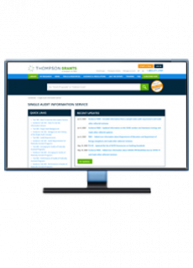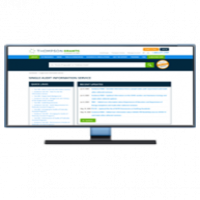Sneak Preview: Financial Integrity Challenges Test HHS

(The follow was excerpted from a recent Thompson Grants Compliance Expert article.) In light of concerns that its grants and assistance programs contributed to more than half of the estimated improper payments reported governmentwide in federal fiscal year (FY) 2021, the Department of Health and Human Services (HHS) faces a key challenge going forward to ensure financial integrity in its programs, according to the HHS Office of Inspector General’s (OIG) recent report on the agency’s 2022 top management challenges.
“The department must protect the fiscal integrity of HHS funds and ensure that beneficiaries have access to the services they need,” OIG stated. “This is a growing challenge due to, among other factors, looming financial shortfalls in the Medicare program, growth in the number of people enrolled in Medicaid, and the massive COVID-19 funds that HHS is responsible for distributing and overseeing via grants and other mechanisms. HHS must manage the efficient and effective use of funds internally and oversee the use of federal funds by hundreds of thousands of external funding recipients.”
The report explained that due in part to their size, HHS health insurance programs account for some of the largest estimated improper payments in the federal government. Medicare, Medicaid and the Children’s Health Insurance Program (CHIP) together accounted for 55%, or $153.7 billion, of all governmentwide estimated improper payments in FY 2021. Even more notable, the Medicaid improper payment rate rose to 21.7% in FY 2021 (up from 21.4% in FY 2020) and the CHIP improper payment rose to 31.8% (up from 27.0%).
“These increases were largely due to the continued re-introduction of beneficiary eligibility errors into the error rate calculation; inclusion of these errors had previously been paused while the Centers for Medicare and Medicaid Services (CMS) updated its [eligibility reporting] component,” OIG said. CMS attributed the rise in eligibility errors to states maintaining insufficient documentation to substantiate that income levels were verified, and failures in conducting timely and appropriate annual redeterminations.
Provisions under COVID-19 relief packages enacted by Congress also complicate eligibility determinations. For example, the Families First Coronavirus Relief Act (Pub. L. 116-127) temporarily increased HHS’ share of Medicaid costs, with the condition that states accepting the additional funds would be prohibited from making their Medicaid eligibility requirements more restrictive and from terminating beneficiaries coverage during the public health emergency (PHE). Once the PHE ends, however, states will need to conduct renewals of eligibility for all individuals enrolled in Medicaid and CHIP, a task that will affect millions of beneficiaries.
(The full version of this story has now been made available to all for a limited time here.)
Join us for our following Thompson Grants events:
Federal Grants Forum | Dec. 7-9, 2022 | Fort Lauderdale, Fla.
Nonprofit Legal, Finance, and Grants Conference | April 6-7, 2023 | Washington, D.C.



